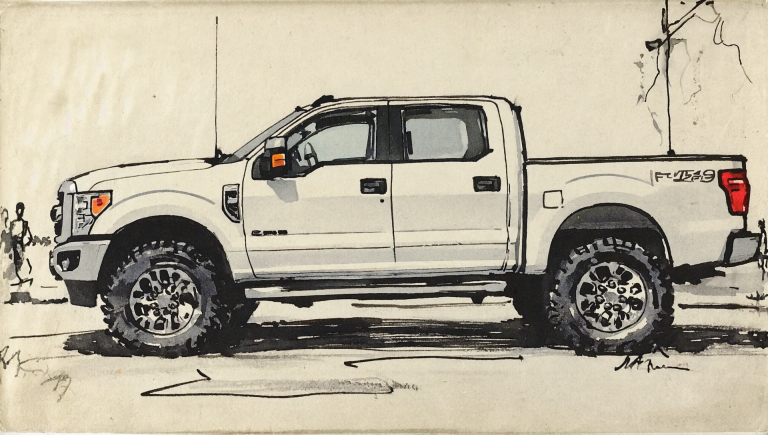Reliable Rides on a Tight Budget: Is Quality Within Reach?

In today’s challenging economic landscape, finding a reliable vehicle without breaking the bank is more important than ever. Many prospective buyers wonder if it is truly possible to purchase a dependable car when working with a very limited budget. This article delves into the reality of buying used cars on a tight budget, exploring the factors that influence reliability, the potential risks involved, and practical strategies for making a smart purchase. By examining market trends, conducting thorough evaluations, and understanding common pitfalls, you can increase your chances of finding a quality vehicle that meets your needs without exceeding your budget.
The notion of finding a car for less than a grand may seem daunting, yet the used car market is filled with opportunities for the resourceful buyer. While it is true that lower-priced vehicles might come with higher risks of wear and tear, there are also many hidden gems available for those who take the time to research and inspect thoroughly. In this comprehensive guide, we break down the key aspects you should consider when hunting for an affordable ride, offering insights from industry experts and real-world experiences.
Understanding the Used Car Market on a Budget
The used car market is vast and varied, with vehicles ranging from relatively new models to much older, well-worn examples. When it comes to budget vehicles, buyers often face the challenge of balancing affordability with reliability. Lower price tags can sometimes indicate issues with the vehicle’s history, high mileage, or the need for costly repairs. However, not all inexpensive cars are destined to be unreliable. With proper research, it is possible to identify models known for their longevity and low maintenance costs.
Budget vehicles typically come from a range of manufacturers, but certain brands have built a reputation for durability even in older models. It is crucial for buyers to familiarize themselves with common reliability ratings and consumer reports for various makes and models. This background knowledge can help you navigate listings and focus your search on vehicles with a proven track record.
One strategy for finding a quality car on a tight budget is to consider models that are a few years old rather than the absolute cheapest options available. These vehicles may have higher price points than the rock-bottom offers, but they often provide better performance, safety features, and reliability, making them a smarter long-term investment.
Key Factors to Consider When Buying a Budget Car
When shopping for an affordable car, there are several critical factors you need to evaluate:
- Vehicle History: A detailed history report can reveal important information such as previous accidents, service records, and ownership history. Look for vehicles with a clear, well-documented past.
- Mileage: Lower mileage is generally a good indicator of less wear and tear. However, a vehicle with higher mileage that has been well-maintained can also be a viable option.
- Mechanical Condition: A thorough inspection by a trusted mechanic is essential. Pay attention to the engine, transmission, brakes, and suspension components, as these are often the most expensive to repair.
- Maintenance Records: Consistent maintenance is a strong sign of a well-cared-for vehicle. Regular oil changes, tire rotations, and timely repairs can extend a car’s life significantly.
- Market Value: Compare prices for similar models in your area to ensure you are getting a fair deal. Understanding the current market value helps in negotiations and in assessing whether the asking price is reasonable.
Balancing these factors is key to finding a car that not only fits your budget but also promises reliability and safety on the road.
Practical Tips for Finding Reliable, Budget-Friendly Cars
Successful car buying on a tight budget involves a mix of preparation, research, and practical strategies:
Research Online Listings: Use reputable online platforms to search for budget vehicles. Websites that provide detailed vehicle histories and user reviews can be especially helpful. Be sure to filter your search by price range, location, and model year to narrow down the options.
Attend Local Auctions and Dealerships: In addition to online research, visiting local car auctions and dealerships can reveal deals that are not always available online. Sometimes, the best bargains are found through direct negotiation with sellers.
Consider Certified Pre-Owned Vehicles: Although they might be slightly more expensive than the lowest-priced options, certified pre-owned cars often come with warranties and assurances of quality. These vehicles have typically undergone rigorous inspections, offering additional peace of mind.
Inspect Thoroughly: Always insist on a complete inspection by a knowledgeable mechanic before making a purchase. This step can uncover hidden issues that may lead to expensive repairs later. Even if the price seems attractive, a detailed inspection is essential to avoid future headaches.
Be Patient and Ready to Negotiate: Don’t rush the decision. The used car market can be unpredictable, and the best deals often require patience and persistence. Being well-prepared with research and a clear budget allows you to negotiate effectively and secure the best possible price.
Risks and Challenges in Budget Car Purchases
While buying a car on a tight budget can be a viable option, it is not without risks. Low-priced vehicles may have underlying issues that are not immediately apparent. Hidden mechanical problems, previous accidents, or poor maintenance histories can turn an attractive bargain into a costly investment in repairs.
Furthermore, the emotional aspect of making a significant purchase on a limited budget can lead to rushed decisions. It is important to remain objective and not let the allure of a low price cloud your judgment. Taking the time to verify the vehicle’s condition and ensuring that it meets your long-term needs is crucial.
Despite these challenges, many buyers have successfully navigated the budget car market by adhering to a disciplined approach. With careful evaluation and realistic expectations, it is possible to find a reliable car that offers both safety and value.
Long-Term Value and Ownership Considerations
When purchasing a car on a limited budget, the initial price is only part of the equation. Long-term ownership costs, including maintenance, repairs, insurance, and fuel efficiency, can significantly impact the overall value of your investment. It is important to factor these ongoing expenses into your decision-making process.
A well-maintained used car, even if it costs less upfront, may incur higher costs over time if it is prone to frequent breakdowns or expensive repairs. Conversely, a slightly more expensive vehicle with a solid maintenance history can prove to be more economical in the long run. Prioritize reliability and overall cost of ownership when evaluating your options.
Additionally, consider the resale value of the vehicle. Cars known for their durability and low maintenance costs tend to retain their value better, which can be an important consideration if you plan to sell or trade in the future.
Future Trends in the Budget Car Market
Looking ahead, the market for budget-friendly vehicles is likely to evolve as new technologies and consumer preferences shift. Advances in automotive technology, such as improved fuel efficiency, electric drivetrains, and digital diagnostics, are gradually becoming accessible even in lower-priced models. This trend may lead to an overall improvement in the quality and reliability of budget cars.
As manufacturers focus on sustainability and cost-efficiency, the gap between high-end and budget vehicles is expected to narrow. Buyers may soon find that even the most affordable cars come equipped with features that enhance safety, performance, and comfort.
Additionally, the increasing availability of comprehensive vehicle history reports and third-party certifications is helping to boost consumer confidence in the used car market. With more information at their fingertips, buyers can make more informed decisions, reducing the risk associated with low-budget purchases.
These emerging trends are set to transform the budget car market, making it an exciting time for consumers who need reliable transportation without a hefty price tag. The combination of advanced technology, improved quality standards, and transparent market practices promises a more accessible and dependable landscape for budget-conscious buyers.
In conclusion, finding a reliable car on a tight budget is challenging but not impossible. By carefully researching the market, thoroughly inspecting potential vehicles, and understanding the long-term costs involved, you can make an informed purchase that meets your needs and stands the test of time. The key is to remain patient, be vigilant about potential pitfalls, and leverage available resources to guide your decision-making process. With the right approach, quality and affordability can indeed go hand in hand in the used car market.





